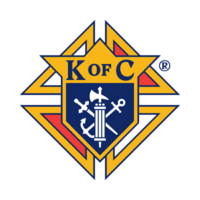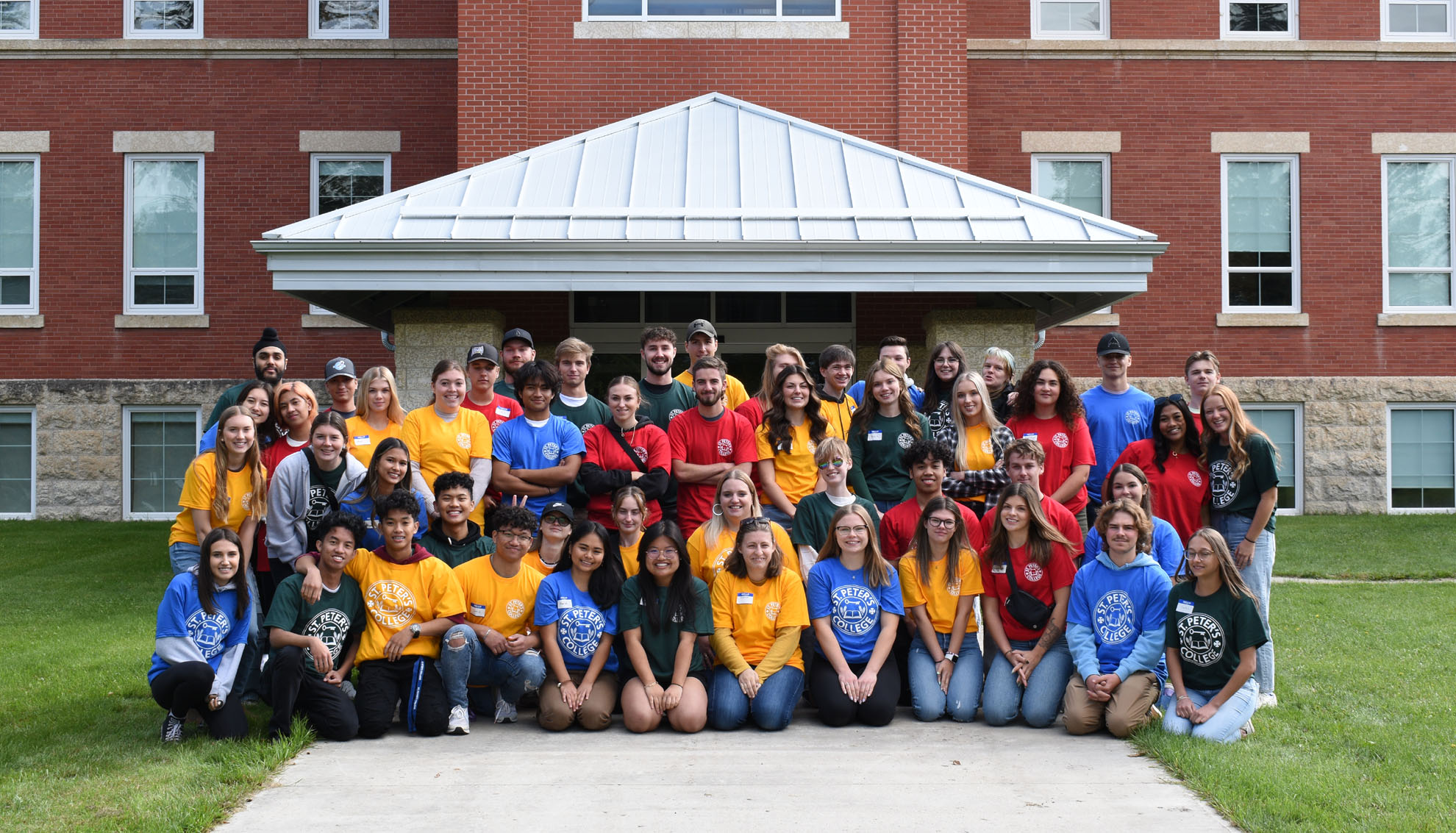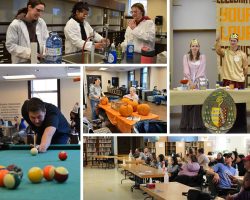International Students
August 12, 2023 2023-09-12 22:49International Students
International Students
International students are welcome at St Peter’s College and the University of Saskatchewan. Students will require a study permit issued by Canada Customs and Immigration. See more information about Study in Canada as an international student.
In order to attend St. Peter’s College, you must apply to St. Peter’s College and the University of Saskatchewan by following the admissions procedures. Your acceptance to St. Peter’s College is dependent on your acceptance to the University of Saskatchewan or your visiting student status.
In general, international applicants must be qualified to enter university in their home country. Specific subjects are required for some areas of study at St. Peter’s College and the University of Saskatchewan. The minimum academic average required is “C” (satisfactory performance range); however, higher averages may be required for some programs.
International students have access to their International Student Representative that sits on the St. Peter’s College Student Government. If an international student requires any support outside of student services, the International Student Representative is their advocate. They can be reached at StudentGovernment@stpeters.sk.ca.
Information from the Saskatchewan Government for International Students studying in Saskatchewan can be found here.
- Student Activities
- Immigration - Prior to Arrival
- Arrival
- Living in Muenster
- Proof of English
- International Student Resources

St. Peter's College provides support to international students through services, programs and activities, while promoting cross-cultural understanding within the College and the surrounding community. Whether you want to practice your English skills, learn about our country, or simply have a chat, St. Peter's College offers this and more.
SPC offers the following services to international students:
- Pre-arrival information
- Airport reception services
- Assistance with applying for Saskatchewan Health card
- General advice on immigration matters, health insurance, travel, accommodation, personal matters, finance and other issues that affect a student's status in Canada
- English language support
- Advice and application forms for renewal of work and study permits
- Access to fax machine
For assistance or to inform us of your arrival plans, please contact Student Services.
You may be required to produce the following documents on your arrival at the Canadian port of entry:
- Study Permit or letter of intent;(CIC - information on study permits)
- passport, with Canadian visa where required;
- original letter or copy of acceptance from the University of Saskatchewan;
- evidence of financial support; and
- a list of any items that you are sending separately (i.e. not cleared personally on your date of arrival).
Your Study Permit, passport, letter of acceptance, and proof of financial support should all be returned to you. Make sure the Canadian immigration officer signs the form, has you sign the form and puts an entry stamp in your passport.
Please note the following:
- Under no circumstances should you leave for Canada without a valid Study Permit (CIC - Applying for a Study Permit outside of Canada (PDF)) or letter of intent (and visa where required) and all the necessary documents to obtain the permit (and visa). It is difficult to change from a visitor to student status after you have entered Canada.
- Students who have been studying at a secondary school or other university or college in Canada must ensure that their Study Permit is valid for the University of Saskatchewan before attending lectures.
- Dependents of international students do not need to provide a letter of acceptance from the school or proof of financial ability.
- Some graduate students will have been admitted without having met the TOEFL (or equivalent) requirement of 213 (computer-based) or 550 (paper-based) or higher with the restriction that this requirement will have to be met before they are allowed to register. We strongly urge such students to take the TOEFL and meet the required score before leaving for Canada. Students who prepare for the TOEFL in Canada must pay their expenses themselves.
Immigration Support
St. Peter's College and partners, such as the University of Saskatchewan, will help you with immigration matters.
Canadian immigration links have been listed for you on this page. Additional information about meeting Citizenship and Immigration Canada (CIC) requirements can be found in the CIC Information Guide.
Immigration Links
CIC - Information on Study Permits
CIC - Applying for a Work Permit-Student Guide
CIC - List of Countries needing a Visitor Visa to enter Canada
CIC - Medical Examination Requirements
CIC - Designated Country/Territory List for medical examination
CIC - Applying to Change Conditions or Renew your permit in Canada
Help us prepare for your arrival! Notify us at least two weeks before your departure. We require information such as name, address, University of Saskatchewan Student Number and flight arrival information.
To help you with your journey and transition to your new life, St. Peter's College provides a reception service to all newly arriving international students who are attending St. Peter's College and are arriving in Regina or Saskatoon, Saskatchewan.
The Canadian Bureau for International Education (CBIE) operates an international student reception service at the Vancouver, Toronto and Halifax airports. Their reception desk is usually located in the immigration area from mid-August to mid-September. If you go to this booth, you should be able to receive assistance and answers to your questions.
From mid-August to early September, the University of Saskatchewan will have a kiosk at the airport where you will be greeted and provided with assistance. Look for the Saskatoon Shines booth on the arrival level of the airport. A St. Peter's College representative will be there to assist you and answer any questions you may have.
If you need assistance or are facing an emergency situation, please contact Student Services.
Students who plan to begin their studies in January should be aware that the College is closed from December 24 to January 2 - our Christmas and New Year holidays. Students need to contact us with their arrival information before December 15.
Transportation
If you advise us of your arrival time, St. Peter's College will take care of your travel to the College. Please tell us when you're arriving at least 10 days in advance of your arrival date. The drive will be just over 1 hour from Saskatoon.
Once You're Here
Soon after your arrival, be sure to visit the Student Services Office for help with:
- Health coverage (bring your passport)
- Orientation packages and information
In addition to visiting Student Services, make sure to:
- Ensure your registration is in order
- Pay your tuition fees through the Finance Officer
- Attend Orientation
- Open up a bank account
- Set up a budget
- Hook up a phone
- Join a club
- Establish an exercise program
- Find a place to worship-church, mosque, temple
Links
You will find useful links to other organizations and government agencies on the appropriate pages throughout this website. Following are a few frequently used links:
The College is nestled on 500 scenic acres of mixed forest and organic farmlands in east-central Saskatchewan, Canada. St. Peter's is located approximately 1 hour east of the City of Saskatoon on the edge of the Village of Muenster. The College is surrounded by many small communities in a rural setting. The nearest city, Humboldt, population 5700, is only 9 kilometres away.
Muenster has four distinct seasons, with the temperature rising or falling dramatically between summer and winter. Temperatures range from +30°C to -40°C. Saskatchewan is very sunny and there are many beautiful sunshine filled days in Muenster. The weather in Muenster can be very unpredictable—with dramatic fluctuations possible in the temperature during the same day. It is advisable that you check the weather forecast every day before going outside to ensure you are wearing appropriate clothing. Source: World Climate
The Village of Muenster has a full range of services such as a bank, grocery store, school, post office, and insurance office. Sports are an important part of Muenster the home of the Muenster Red Sox, a Senior Baseball team. The Red Sox played in the North Central Baseball League from 1964-2003 and have since played in the Saskatoon Senior League. The community is also active in hockey, soccer, and curling, as well as, various other sports and recreational organizations.
The City of Humboldt has clothing, grocery and drug stores, a wide variety of restaurants, fast food outlets, a full service hospital, medical clinic, movie theatre, fitness centres, indoor swimming pool, hockey arena, curling rink, golf course, baseball diamonds, hotels, car dealerships, and much, much more.
International students may drive in Saskatchewan for the period during which they are students if:
- they are non-residents temporarily in Saskatchewan for the purpose of attending an educational institution;
- they hold a valid Study Permit and are registered full-time, and
- they carry with them a valid licence from their home country. (Note: The license must be for the class of vehicle the student intends to drive—i.e. someone with a license to operate a car may not operate a motorcycle or commercial truck unless another class of license is obtained.
Please see Saskatchewan Government Insurance to determine whether you can drive in Canada.
Medical insurance is important for your health and wellbeing. International students who come to Canada directly from another country are eligible to receive coverage starting the day they arrive in Saskatchewan. To receive coverage, you must apply to be registered with Saskatchewan Health. Application forms are available at the Front Office, or you can download them from Saskatchewan Health.
The language of instruction at St. Peter‘s College and the University of Saskatchewan is English. All applicants whose first language is not English must present evidence of English proficiency. Please see the U of S Requirements and Deadlines for more details.
Applicants require one (1) of the following:
1.
- At least 3 years of full-time study in an approved English-medium secondary program including Grades 10, 11, and 12, as well as successful completion of Grade 12 English Language Arts A30 and B30 (or equivalents)
- Students from overseas schools offering a Canadian education system curriculum in English require a minimum grade of 65% on their Grade 12 English course(s).
- At least 2.5 years of full-time study in an approved English-medium secondary program including Grades 11 and 12, as well as successful completion of Grade 12 English Language Arts A30 and B30 (or equivalents) with minimum final grades of 70%
- At least 2 years of full-time study in an approved English-medium secondary program including Grades 11 and 12, as well as successful completion of Grade 12 English Language Arts A30 and B30 (or equivalents) with minimum final grades of 80%
-OR-
2.
- Successful completion of at least one year of full-time study in a degree program from a recognized post-secondary institution where English is the official language of instruction and examination
- Successful completion of a minimum two-year diploma from a recognized post-secondary institution in Canada where English is the official language of instruction and examination
- Successful completion of a minimum three-year diploma from a recognized post-secondary institution outside of Canada where English is the official language of instruction and examination
NOTE: The post-secondary institution must declare English to be the only language of instruction and examination throughout the institution, not just in select departments. If post-secondary study occurred more than five years ago, additional proof of English proficiency may be required.
-OR-
3. Successful completion of either:
i. Level UP2: High-Advanced Academic English offered by the U of S Language Centre
ii. English as a Second Language (ESL 050) program offered by the University of Regina.
-OR-
4. Completion of an English Proficiency Test to meet the standards below. Test scores must be forwarded by the testing centre directly to International Admissions no later than the deadline for receipt of documents.
| TOEFL (institutional TOEFL not accepted) Test of English as a Foreign Language |
|
| IELTS International English Language Testing System |
|
| CanTEST Canadian Test of English for Scholars and Trainees |
|
| CAEL Canadian Academic English Language Assessment |
|
| MELAB Michigan English Language Assessment Battery |
|
Pearson Test of English Academic |
|
| Cambridge English: Advanced (CAE) |
|
| Duolingo English Test (DET)* |
|
-OR-
5. Completion of one of the following qualifications
| Advanced Placement (AP) English | 4 or better |
| International Baccalaureate (IB) English A1 or A2 Higher Level | 5 or better |
| International Baccalaureate (IB) English B Higher Level | 5 or better |
| GCSE/IGCSE/GCE O-Level English, English Language, or English as a Second Language | B or better |
| GCE A/AS/AICE Level English or English Language | B or better |
Please contact St. Peter's College Student Services for help prior to applying.
Resources:







